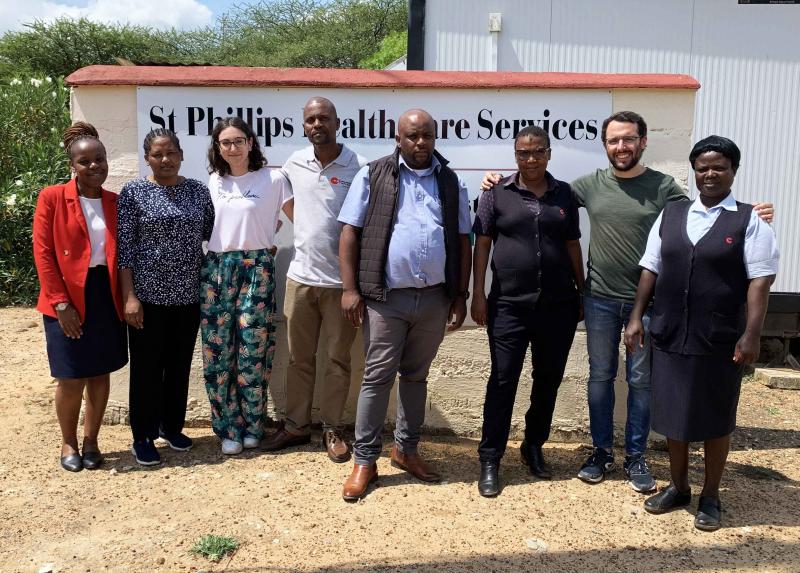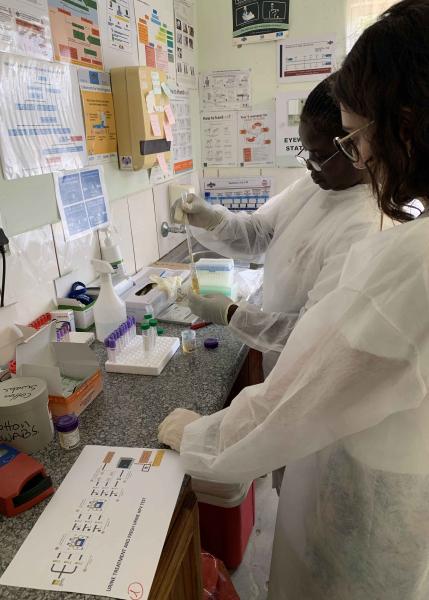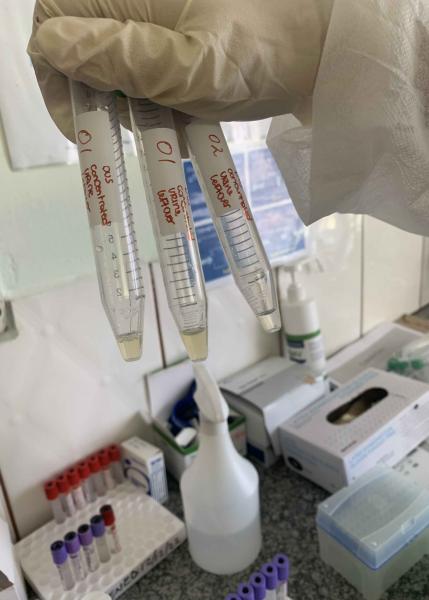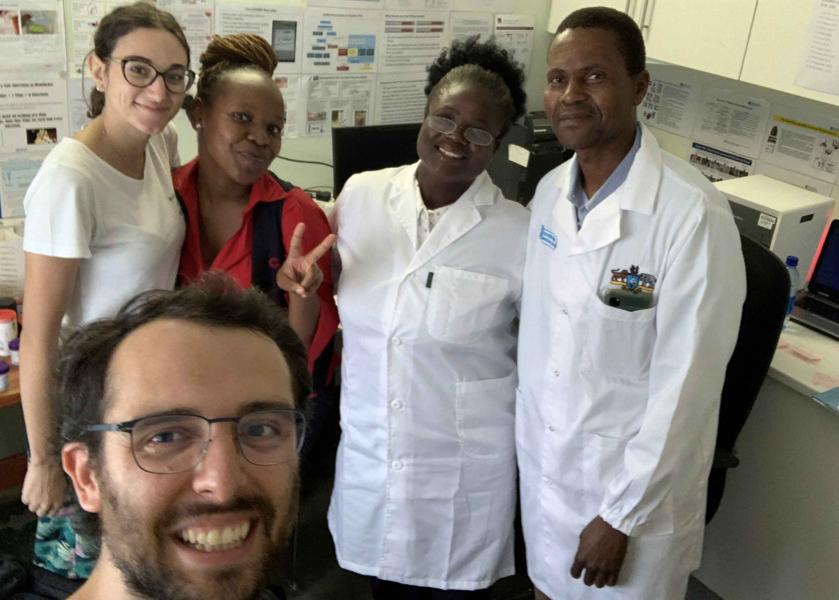0250315139

Tengetile Motsa, Meseret Naba, Clara Fappani, Bongani Nhleko, Velaphi Msibi, Nokthula Dlamini, Simone Villa e Busisiwe Dlamini - Foto di A. Hlandze
A screening campaign based on the detection of HPV, the Human Papillomavirus causing cervical cancer, has just been launched at St. Philip's Clinic in eSwatini, Southern Africa. Leading the campaign is a lab managed by Elisabetta Tanzi, scientific coordinator of the Research Centre of the University of Milan for Epidemiology and Molecular Surveillance of Infections (EpiSoMI), which has been investigating the biological, epidemiological and prevention aspects of infective diseases for over 20 years, together with the Centre for Multidisciplinary Research in Health Science (MACH), headed by Mario Raviglione, who coordinates the 2nd level vocational master programme in Global Health and has a long history of collaborations with the Cabrini Mission for projects in this field.
The campaign is part of an international cooperation project started two years ago by both teams of the University of Milan together with Mother Cabrini's Missionary Sisters of the Sacred Heart of Jesus, who use St. Philip's Clinic as their African headquarters to offer medical assistance in a rural area consisting of villages of straw and mud huts on the border with Mozambique. The newly launched project is equally co-managed by the local staff and enjoys full support by the ministerial authorities of the area.
"In December 2022 we visited St. Philip's Clinic in eSwatini with Clara Fappani, PhD student in Public Health Sciences, and postdoctoral fellow Simone Villa, to manage and train the staff of the laboratory where in the past few days Clara and Simone, together with Thavisha Gunaratne, a student of the International Medical School who is writing her thesis on Global Health with Professor Raviglione, have started recruiting women aged 12-49 who will undergo an HPV-test based on a simple urine collection and using a fast and ultra-modern technology" – said Professor Tanzi, who over the past 10 years has coordinated important studies on how to address the issue of cervical cancer in medium-low income countries, where the incidence rate of the disease is much higher than in developed countries.
Studies conducted so far by the team of the University of Milan – which also include Professor of Public Health Antonella Amendola, research fellow Silvia Bianchi, laboratory technician Daniela Colzani and postdoctoral fellow Maria Gori – have focused on the implementation of a screening strategy based on methods that can be more easily applied in poor areas. In fact, the economic and human resources available in such contexts, along with their particular cultural, social and religious conditions, hamper secondary prevention activities that rely on cytological sampling for the purpose of carrying out Pap-smears (which detect cervical lesions caused by HPV) or HPV-tests (which are molecular biology tests capable of identifying the virus).
"In the lab at St. Philip's Clinic – continues Professor Tanzi – we are able to carry out molecular tests to detect HPV-DNA using fresh urine samples, or even specimens of urine dried on filter paper (the so called DUS, Dried Urine Spot, which is easier to store, carry and even send by mail). These samples are processed on the GeneXpert automated platform by US company Cepheid, and enable us to detect the virus genome in less than one hour".
"The project in eSwatini – adds Mario Raviglione – also include an epidemiological and molecular study on predominant viral genotypes in eSwatini, a cost-effectiveness analysis of the intervention, and a socio-anthropological study on the acceptability of urine tests instead of tests based on cell sampling. All of this will open future options in terms of healthcare policies to address cervical cancer, in line with the WHO recommendations and with the aim of nudging governments of countries harshly affected by this disease into accepting modern prevention methods, including vaccination campaigns, that to date are not available in the majority of high-incidence-rate countries. This could contribute to saving millions of human lives".
Contatti
-
Elisabetta Tanzi
Dipartimento di Scienze della Salute -
Mario Carlo Battista Raviglione
Dipartimento di Fisiopatologia Medico-Chirurgica e dei Trapianti0250320351
Potrebbero interessarti anche



